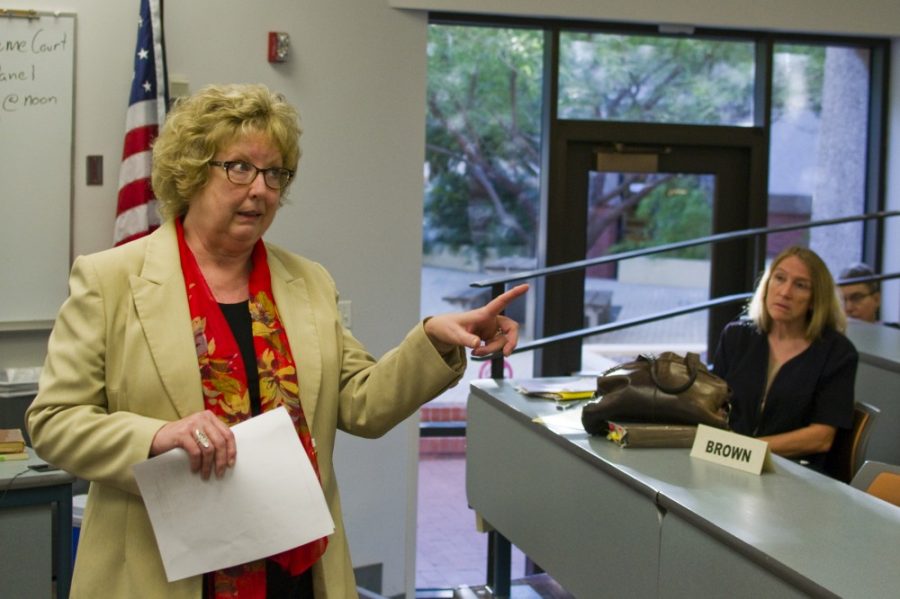What began as a conversation at Monday’s Faculty Senate meeting about the employee-related expense rate for graduates eventually turned into a discussion on faculty compensation, and how many UA professors haven’t seen raises in nearly half a decade.
The expenses, which include insurance, retirement and other benefits — in addition to a university employee’s salary — were being addressed by Graduate and Professional Student Council President Zachary Brooks when Wanda Howell, the senate’s faculty chair, asked Provost Andrew Comrie about the expenses’ recent and abrupt increase, which ideally would have been a gradual change.
Comrie answered by saying that past years’ increases have been very minute, so it was necessary for a large increase to help strike a balance for the projected overall increase.
Eventually, Howell turned the discussion to faculty compensation, suggesting that a policy be eventually implemented to allow for salary increases on a “semi-routine” basis.
“Is that ever going to be possible for us?” Howell asked, “And are we ever going to get a raise?”
Comrie explained that the ideal policy would be a “ladder” of positions that moves up incrementally every set number of years, much like what some institutions in California do.
“The bigger challenge is actually where to find the money to pay for it, just like in any other system,” Comrie said, adding that “nothing is impossible.”
The provost went on to say that a raise in wages ultimately depends on the status of the U.S. and state economies, but that the raises will come as soon as other money gets freed up.
Howell then suggested the option of laying off various appointed professionals, arguing that staff members with that classification are often among the highest-paid.
Comrie answered with a statement on the necessity of having experts within various departments to provide a high quality of education.
“I certainly wouldn’t want to disparage the work of any of the members of the university community who go into supporting that fundamental interaction between student and professor, which is what drives the whole university,” he added. “It does take a whole set of folks.”
Comrie reminded the senate that the university continues to make due with the funds it has, after budget cuts over the last five years left the university with about $180 million less than what it normally operates on. While tuition increases helped address those cuts, Comrie said, about two-thirds of those funds are still unavailable, which would have been the source of funding for additional hires and raises.
“The only way one could in fact follow policy and give raises to staff would be to lay some staff off, so you have the money to fund the raises of the other staff,” he said. “It’s been unprecedented tough times.”









